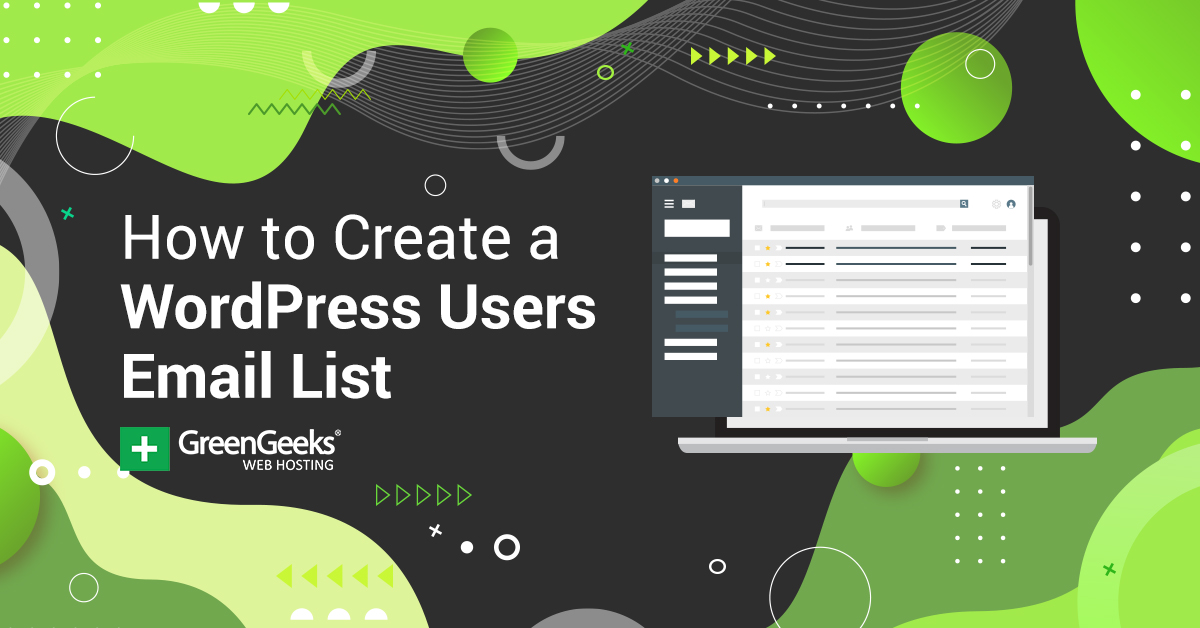It's important to consider several aspects when purchasing a hematologist mailing list to make sure that the list you purchase is correct, in compliance with the law and applicable to the marketing objectives. Here are some crucial considerations. Quality and Accuracy of the Data
Source of Information: Confirm that the email list provider has reliable sources for example, medical databases, professional directories or verified opt-ins from hematologists. How accurately the contacts are collected will determine the quality and accuracy of the email list.
Verification and Updates: Contact your provider about its data verification and updating process. Email addresses that are inactive or are incorrectly listed should be deleted. Since healthcare professionals are likely to change positions and even institutions, it is important that the list be regularly updated.
Specialization and Segmentation: Make sure that your list is specific to hematologists. It could be segmented further such as by subspecialty (e.g. pediatric hematology, oncology) or location, years of experience, or hospital affiliation. The lists that are segmented well are a great way to target your outreach efforts more effectively.
2. Legal Regulations
Data Privacy Laws – Ensure that the list is compliant with applicable laws and regulations, for example California Consumer Privacy Acts in the U.S.A. or General Data Protection Regulations in Europe. The emails collected must have the permission of all those that are involved.
CANSPAM Act – In the U.S.a ensure that your email list complies with the CANSPAM Act. It governs electronic commercial communications. Infractions could result in fines and your emails could be flagged as spam.
Opt-in Consent. The email list must consist of hematologists who have signed up to receive third-party email. Uninvited emailing to patients who haven't given consent can cause poor engagement as well as legal problems.
3. Provider Reputation
Reputable Provider: Study the reputation of the listed provider. Check reviews, testimonials and case studies to determine if they are a trustworthy company. A company that has an established track record will be more likely to deliver accurate, high-quality information.
Transparency - Select a data provider that is transparent terms of the source of the data and how it was collected. It is recommended to stay clear of data providers who are vague or unclear in their methods of collecting data.
Customer Support - It's crucial to select a service who offers excellent customer service. Strong support is important if you have questions or need assistance regarding technical issues, compliance issues, or list customization.
4. Cost and Return on Investment (ROI).
Pricing Models: Think about the pricing models offered, including whether they are pay-per-contact, flat rate or subscription. Make sure that the cost is in line with your potential ROI, balancing list quality and quantity with the budget for your marketing.
Refund or Replacement Policy. A reputable provider offers an option for refunds or replacement for obsolete or invalid emails. Be sure to read the terms and conditions before you make a purchase.
Value for Money – Compare the features and prices of the list. If the quality of the data on the list is not good the list with the lowest price may not be the most appropriate choice.
5. Use and Ownership of Data
Multiple Use: Be aware of the rules of use applicable to the email list. Multiple Use: Be sure you are aware of the terms and conditions for making use of the list of email addresses. You might only be allowed to use a list once in campaigns. Other companies offer unlimited rights to use.
Exclusive vs. Shared Lists: Choose whether your email list is exclusive or shared. Exclusive lists are more likely to generate better engagement because the contacts are less exposed to marketing emails.
6. Data Integration and Format
Compatibility: The email list should be compatible with email or CRM tools. The list should come in common formats such as CSV or Excel to make it easy to integrate.
The list must be simple to manage and filter. Lists difficult to segment may decrease the efficiency of your marketing efforts.
7. Ethical Questions
Relevance: It is important to ensure that the information you are sending to hematologists has relevance. Not sending them content that does not align with their expertise could cause poor engagement, which could negatively impact the reputation of your brand.
Beware of Spam Methods: Try not to flood the recipients with too many emails. Sending too many messages too frequently could lead to spam complaints and damage to the reputation of your email sender.
The article's conclusion is:
It's crucial to think through the advantages and disadvantages of purchasing a list of hematologists. To ensure that you're receiving a list that is of top quality and accuracy, you should focus on the accuracy of the data as well as the conformity with privacy laws and the track record and reputation of the provider. Segmentation, legal compliance, as well as ethical marketing are essential aspects to be considered when you are trying to maximize your ROI. Have a look at the most popular hematologists email list for website examples.

What Should I Consider Before Buying An Oncologist Email List?
If you are purchasing an oncologist mailing list, it is important to take into consideration factors to make sure that the list is top-quality, legal and geared towards your marketing objectives. Here are a few key factors to consider. Quality of data and accuracy
Source of information: Make sure that the list is sourced from trustworthy, reliable sources like medical directories, professional organizations, or a healthcare database. Avoid lists that come from unreliable or untrusted sources, since they could contain outdated or inaccurate data.
Verification Method: List providers must implement a robust process to confirm that their email addresses are correct, authentic and in use. The provider should periodically update and purge the list in order to remove any incorrect or duplicate addresses.
Segmentation - A quality email list for oncologists should include segments. Being able to filter the list by subspecialties (e.g., pediatric oncology, surgical oncology, hematology-oncology), geographic location, years of experience, or institution allows for more targeted outreach, increasing the likelihood of engagement.
2. Legal Regulations
Data Privacy Regulations – Ensure email list complies lawful privacy requirements for data, like the General Data Protection Regulations in Europe or the California Consumer Privacy Acts in the U.S. Email addresses must be collected legally and processed with respect to data privacy and consent.
Compliance with the CANSPAM Act: If you are running a campaign within the United States, be sure that your list conforms to the CANSPAM act which governs all commercial emails. It is essential to include an explicit opt-out button in every email. Also, make sure that the subject lines of your emails are accurate and do not fool recipients. Non-compliance with the law can result in fines and your reputation may be damaged.
Consent to Opt-In: Verify that all email addresses were obtained by consent. Oncologists are required to have given consent for marketing communications. This will help ensure compliance with privacy laws and lower the possibility of receiving spam complaints.
3. Provider Reputation
Reputable Provider - It's crucial to buy your list from a leader with a good reputation. You can verify the reliability of a service by examining their past review, testimonials, and case studies. Established companies have a greater likelihood of being able to provide accurate and legally-compliant information.
Transparency: The service provider must be clear about where the data is collected, how frequently it is updated and the verification methods employed. Insufficient transparency can be a warning sign and could indicate poor quality data.
Customer Support: Choose a vendor that provides responsive customer service in the event you need assistance with your list, or if you have questions about integration or segmentation.
4. Cost and ROI
Pricing Structure: Be aware of the pricing structure, regardless of whether it is based on contacts or a fixed cost subscriptions. Be aware of what the model of pricing is aligned with your marketing budget and the expected return on investment.
Refund or Replacement Policy: A reliable service will provide a refund or replacement policy for incorrect or out-of-date email addresses that are not valid or outdated. Clarify the terms of purchase prior to making a purchase in order to safeguard your investment.
Do not just concentrate on price. Although a less expensive list might be appealing, if this leads to low engagement or poor deliverability your campaign may fail. Make sure the data is correct and pertinent.
5. Ownership and Usage of Data
The list is able to be used for one campaign, or you may keep it for future use. If you're planning to launch multiple campaigns, buying the list will give you more flexibility and longer-term value.
Exclusive vs. Shared Lists: Determine whether the list is only available to you or offered to many buyers. Exclusive lists are generally more valuable because they lessen the fatigue of an audience, which results in greater engagement.
6. Data Integration and Format
Integration with CRM: Make sure that your list can easily be imported into your Customer Relationship Management (CRM) or email marketing tools. The list should come in a format that can be easily integrated, such as CSV or Excel.
Simple segmentation: The CRM list should be easy to segment. Being able to filter quickly by criteria like oncology subspecialty or geographic location will allow you to tailor your marketing campaigns to be more effective.
7. Ethical Questions
Relevance: Oncologists work in highly specialized fields and have busy schedules. You should tailor your message to their interests or needs. This could be the use of medical equipment, or continuing education. Relevant emails could lead to low engagement and a negative brand image.
Avoid Spam Don't send an excessive amount of emails or spam messages, which could result in spam complaints. You should send out emails regularly to engage your audience without over-burdening them.
Conclusion
When purchasing an oncologist's email list, you should consider accuracy of data legal compliance, as well as the reputation of the provider. Be sure that the list has been targeted and customized to your target audience. Think about these elements to design an efficient and reliable outreach strategy. View the best oncologist email list for more recommendations.
